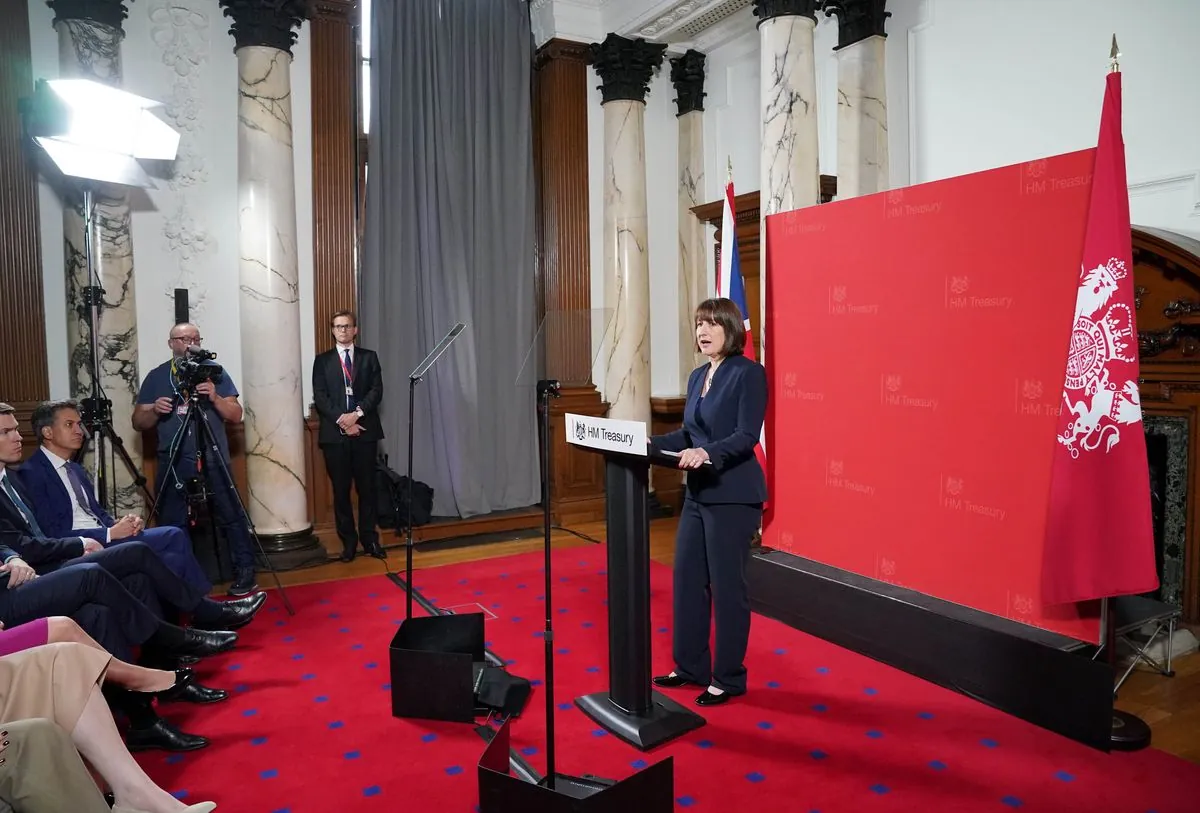Labour Chancellor Considers Wealth Tax Amid Union Pressure
Rachel Reeves, facing a £22bn deficit, explores wealth tax options. Unite union calls for 1% tax on wealthiest 1%. Experts warn of broader tax implications and potential economic impact.

In a significant policy shift, Rachel Reeves, the Labour Chancellor of the Exchequer, is contemplating the introduction of a wealth tax as the government grapples with mounting fiscal pressures. This development comes as union leaders, particularly from Unite, intensify their calls for increased taxation on affluent individuals.
The potential wealth tax is being considered as part of efforts to address a reported £22 billion deficit in public finances. This fiscal challenge has prompted discussions about various revenue-raising measures, including potential adjustments to capital gains, inheritance, and property taxes.
Unite, the UK's largest trade union with over 1.4 million members, has proposed a 1% tax on the wealthiest 1% of the population. The union's leader argues that such a measure could significantly contribute to resolving the current financial shortfall.

The Treasury, while not explicitly ruling out a wealth tax, has emphasized the need for "difficult decisions" on spending, welfare, and taxation. This stance reflects the government's commitment to addressing fiscal challenges while maintaining a progressive tax system.
"Following the spending audit, the Chancellor has been clear that difficult decisions lie ahead on spending, welfare and tax to fix the foundations of our economy and address the £22bn hole in the public finances left by the last government."
The Labour government's approach to taxation has raised concerns among investors, particularly in the banking sector. Share prices of major UK banks, including NatWest, Barclays, and HSBC, experienced notable declines following the Prime Minister's comments about those with "the broadest shoulders" bearing the "heaviest burden."
This domestic debate occurs against a backdrop of global discussions on wealth taxation. Last month, at the G20 meeting, finance ministers expressed interest in a potential global tax on billionaires, inspired by economist Gabriel Zucman's proposal for a 2% levy on the world's 3,000 wealthiest individuals.
Economic experts, including Sir Charlie Bean, former Deputy Governor of the Bank of England, caution that targeting only the ultra-wealthy may not generate sufficient revenue to address the fiscal deficit. The Institute for Fiscal Studies suggests that broader tax measures might be necessary to achieve the government's financial goals.
The current situation reflects a continuation of a 15-year trend in UK tax policy, which has seen increased taxation on high earners while maintaining or reducing direct taxes on average earners. This shift has led to debates about the fairness and effectiveness of the tax system.
As the government navigates these complex fiscal challenges, some economists argue for a more optimistic economic outlook. They point to strong private sector balance sheets, robust labor markets, and the UK's leading economic growth among G7 nations in the first half of the year as reasons to nurture economic recovery rather than implement potentially growth-inhibiting tax increases.
The coming months will be crucial as the Labour government balances fiscal responsibility with economic growth, all while addressing calls for increased taxation on the wealthy and maintaining public confidence in their economic stewardship.


































